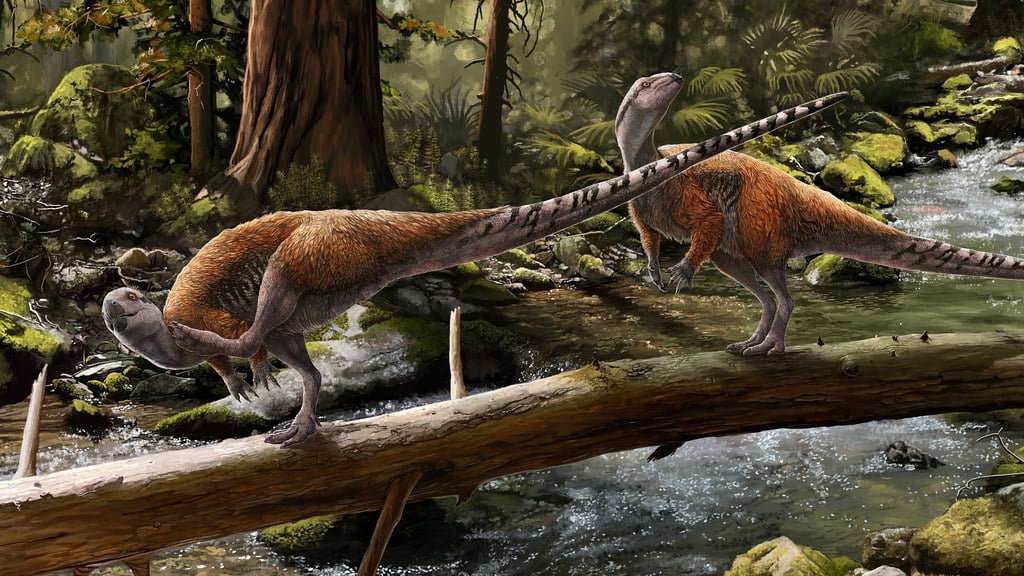
A new dinosaur species has been identified after a fossil was found by an unnamed amateur fossil collector on Britain’s Isle of Wight.
The dinosaur, a small herbivore species given the name Vectidromeus insularis, was provided to researchers when another amateur collector, Sean Smith, observed it and thought it might be worth further study, according to a blog post from Nick Longrich who later led the scientific research. That research was published in the academic journal Cretaceous Research on September 13.
Longrich, a professor with the Milner Centre for Evolution at the University of Bath, said the researchers were initially interested in the specimen because they thought it might be a type of carnivorous dinosaur called a theropod.
As the fossil was prepared by researcher Mick Green, it was revealed to be an ornithischian, a species of herbivore dinosaurs, similar to Hypsilophodon foxii but not identical. It is also believed to be a juvenile. Longrich added that further examination during preparation showed that the specimen had a distinct ilium, pubis, and ischium.
“Eventually, working with local collectors, we were able to put together a fair amount of the animal—four different pieces were ultimately found, collected by different people at different times, including much of the hips, parts of the legs, the toes, and bit of the tail,” Longrich wrote.
Longrich said pieces were collected in the same place, around the same time, and seem to be one skeleton. He added that “a lot of hypsilophodont fossils” have also been found on the Isle of Wight but the Vectidromeus insularis specimen is not believed to be the same species.
In his post, Longrich praised the work of the amateurs that led to the discovery and urged more paleontologists to work closer with the amateur community: “It’s actually pretty rare that a scientist finds a scientifically important fossil on the Isle of Wight.”
In a news release, the researchers said both dinosaurs are members of the hypsilophodonts family and lived around 125 million years ago alongside early tyrannosaurs, spinosaurs, and Iguanodon. The Vectidromeus was found lower in the rocks and believed to be about two or three million years older than Hypsilophodon foxii.
“It is utterly bizarre that so many new dinosaurs are being discovered on the Isle of Wight,” said study co-author Dave Martill from the University of Portsmouth. “Vectidromeus is the seventh new species of dinosaur to be discovered in the last four years. This is all down to the amateur collectors.”
More Trending Stories: